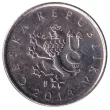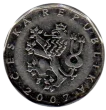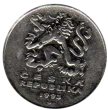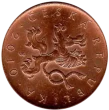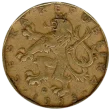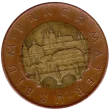Exchange your Czech Koruna
Do you have leftover Czech Koruna? We offer a fast and easy way to exchange both current and withdrawn Czech Koruna banknotes and coins. Convert them into your local currency today with our quick and hassle-free exchange service.
Kč - CZK
The Czech Koruna has been the official currency of the Czech Republic since 1993 and remains a stable and trusted currency in Central Europe.
Czech Koruna Information
The Czech Koruna (CZK), also known as the Czech Crown, is the official currency of the Czech Republic. Introduced in 1993 following the peaceful dissolution of Czechoslovakia, the Koruna has become a symbol of the Czech Republic’s economic independence and stability. The currency has undergone significant changes over the years but remains an important part of the country’s financial system and a reflection of its strong economic performance.
The Koruna is subdivided into 100 haléřů, although haléř coins are no longer in use. The currency is issued in both coins and banknotes. Czech coins are available in denominations of 1, 2, 5, 10, 20, and 50 koruna, while banknotes are issued in denominations of 100, 200, 500, 1,000, 2,000, and 5,000 koruna. The designs of Czech Koruna banknotes feature notable figures from Czech history, such as King Charles IV and the composer Bedřich Smetana, as well as images of important national landmarks.
The Czech economy is one of the most developed in Central Europe, with a strong industrial base and a highly skilled workforce. The Czech Koruna plays a vital role in facilitating both domestic transactions and international trade. The country’s major industries include automotive manufacturing, engineering, electronics, and tourism, all of which contribute to the strength of the Koruna. The currency is widely used in international transactions, and its stability makes it a preferred medium of exchange.
The Czech National Bank (CNB) is responsible for issuing the Koruna and managing the country’s monetary policy. The central bank plays a key role in maintaining low and stable inflation, which is crucial for preserving the value of the Koruna. Over the years, the CNB has implemented a range of economic policies aimed at ensuring financial stability and promoting sustainable economic growth, which has helped the Koruna remain a stable currency even during times of global economic uncertainty.
One of the defining characteristics of the Czech Koruna is that the Czech Republic has not adopted the Euro, despite being a member of the European Union since 2004. The country has opted to retain its own currency, citing concerns over the loss of monetary sovereignty and the potential impact on the Czech economy. This decision has allowed the Czech Republic to maintain control over its monetary policy, and the Koruna has continued to perform well in international markets.
However, the Czech Republic remains committed to its obligations as an EU member, and there is ongoing debate about whether the country should eventually adopt the Euro. For now, the Koruna remains the official currency, and it continues to play a central role in the country’s economic life.
In recent years, the Czech economy has shown strong growth, and the Koruna has remained stable and widely used in both domestic and international markets. The currency is a symbol of the Czech Republic’s economic resilience and its ability to navigate the challenges of the global economy.
In conclusion, the Czech Koruna has been the official currency of the Czech Republic since 1993, playing a key role in the country’s economic success and stability.

